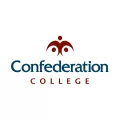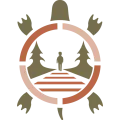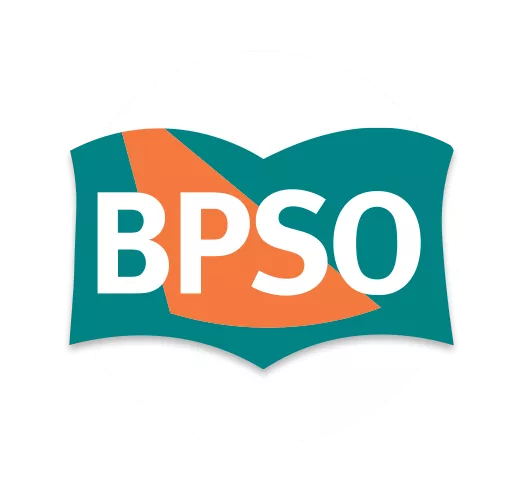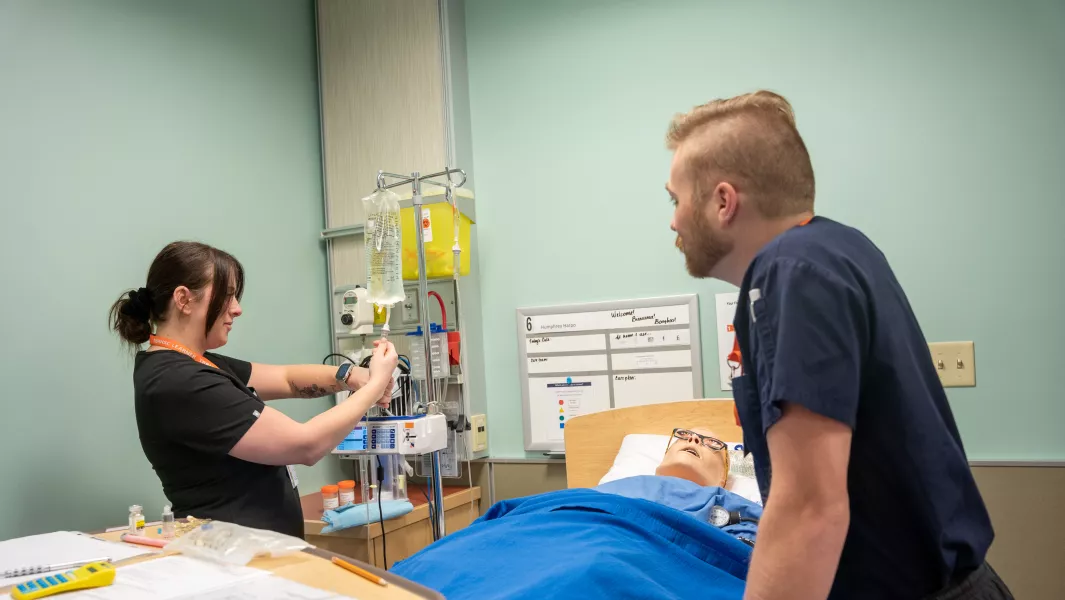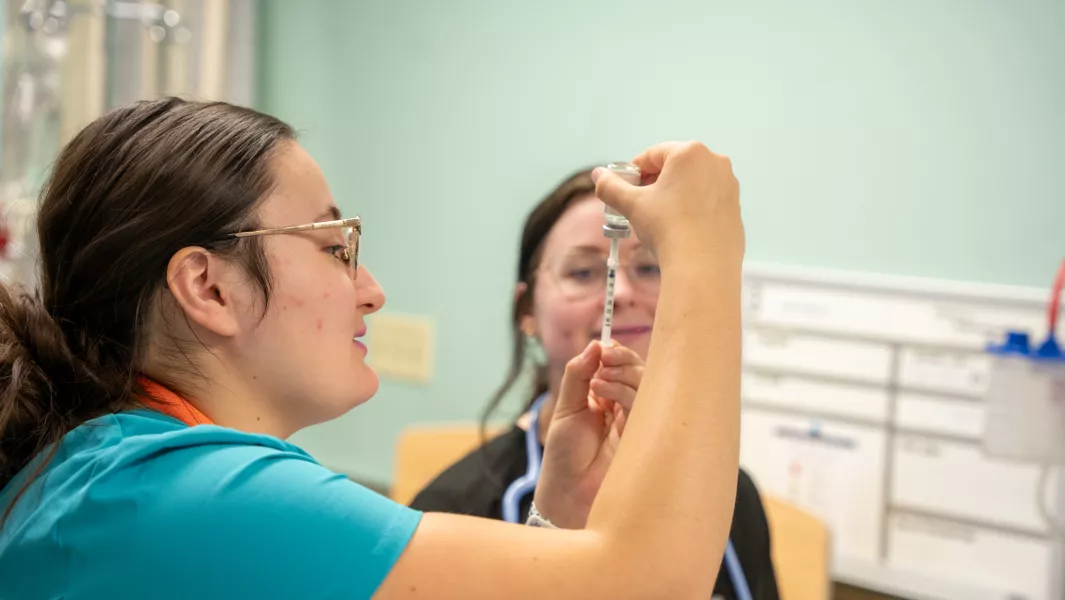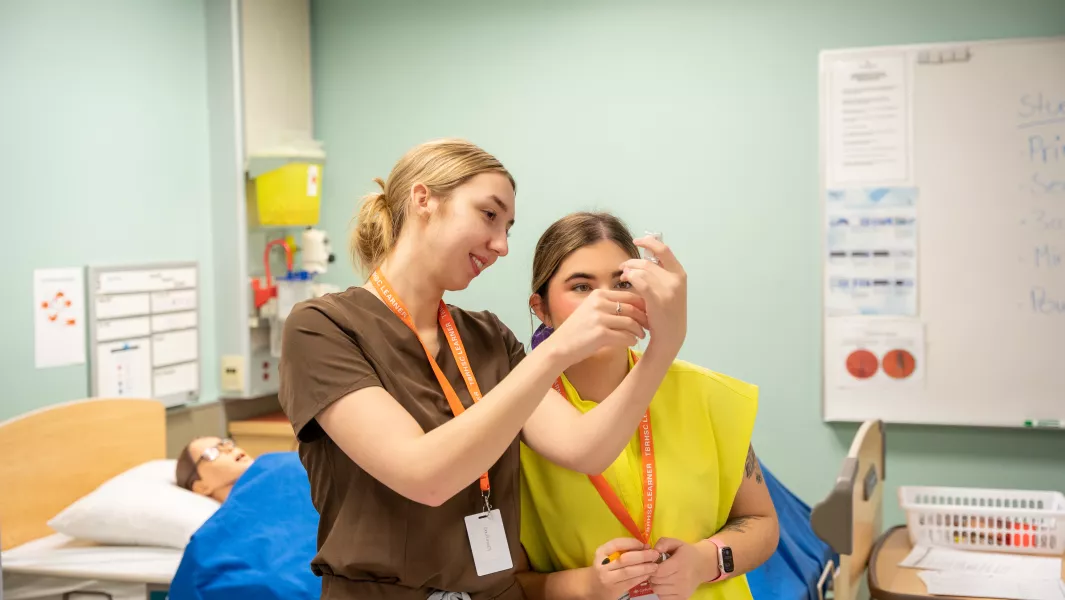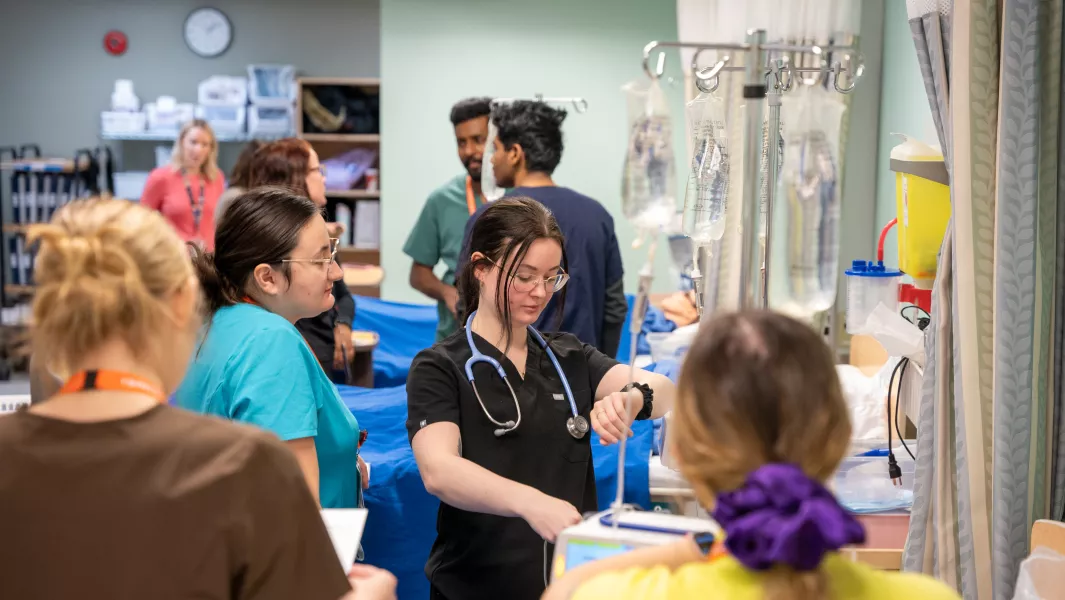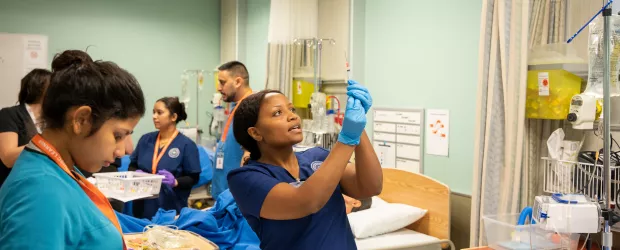| CS 050 |
College Writing |
42 |
Expand
In this course, students will be introduced to academic writing styles with a thematic focus on current issues. This course will help students to express themselves clearly and correctly in written form. Students will critically analyse assigned readings and express their thoughts. The course will also focus on the development of an academic paper utilizing the APA style of documentation. |
|
| HS 125 |
Anatomy & Physiology I |
42 |
Expand
This course is a general introduction to the structures and physiology that make up the human body. It provides the basis for the subsequent study of pathophysiology and patient care procedures. |
|
| PN 125 |
Professional Practice I |
42 |
Expand
This course will establish a foundation for which the learner will begin to understand nursing's professional contributions to health and wellness. An emphasis of this course will include introducing the learner to the nursing profession, nursing's historical underpinnings, and the influence of nursing theorists on nursing practice (e.g., health promotion and self-care). Culminating this course are themes relating to the teaching-learning process; applying, analyzing, and evaluating evidence; and initiating, engaging, and fostering mentoring relationships. A large portion of this course is devoted to the learner's understanding of the College of Nurses of Ontario's (CNO) practice standards and practice guidelines, and regulatory bodies and professional organizations. This course will support the knowledge, skills, judgment, and nursing attitudes required during all simulation (scenarios) experiences that occur throughout the Practical Nursing program. |
|
| PN 126 |
Foundations - Nursing Practice |
42 |
Expand
This course will introduce the learner to the theoretical and conceptual frameworks of health and healthy lifestyles, nursing process, concept care mapping and critical thinking. All levels of the health care system will be examined with a focus on determinants of health. The dimensions of human needs throughout the lifespan will be explored with an emphasis on the significance of self-responsibility and the change process. This course will support the knowledge, skills, judgment, and nursing attitudes required during all simulation (scenarios) experiences that occur throughout the Practical Nursing program. |
|
| PN 128 |
Therapeutic Nurse Client Relationships |
42 |
Expand
This course introduces the learner to the development of the therapeutic nurse-client relationship. The learner will study the concepts of caring and collaboration; client and family-centred care; and the maintenance of professional boundaries and therapeutic communication as constructs of the helping relationship. Exploring the "Therapeutic Nurse-Client Relationship (Revised, 2006)" (College of Nurses of Ontario (CNO), 2019), learners will engage in an in-depth discussion of the components of trust, respect, professional intimacy, empathy, and power/abuse of power. This course will examine the six principles of the "Code of Conduct" (CNO, 2019), which guides nurses' and other healthcare professionals' (HCPs) obligations and provides a framework for understanding the public's expectations of nursing. Additionally, this course integrates evidence-informed practice by incorporating the Registered Nurses' Association of Ontario (RNAO) Best Practice Guideline, Transitions in Care and Services (2nd Ed.). This guideline will enhance the learner's understanding of effectively managing transitions in care, ensuring continuity of care, and maintaining quality client care. This course will support the knowledge, skills, judgment, and nursing attitudes required during all clinical and simulation experiences throughout the Practical Nursing program.
|
|
| PN 130 |
Technical Concepts in Health Care |
42 |
Expand
This course will assist the learner to discover necessary mathematical functions and the use of information and communication technologies (ICTs), essential to implementing safe nursing interventions. Learners will apply theoretical knowledge learned in the classroom, to a variety of application assignments and by using different technologies. In accordance with nursing's commitment to public safety, accurate inter-/intra-professional communication, and effective collaboration, learners will learn and apply common medical terminology to routine nursing situations. Culminating this course, learners will be introduced to various electronic medical record systems (e.g., Meditech and Sim Chart); review the reliability of electronic resources, which could support safe nursing practice; and discuss Personal Health Information Access and Protection of Privacy Act which support public trust. This course will support the knowledge, skills, judgment, and nursing attitudes required during all simulation (scenarios) experiences that occur throughout the Practical Nursing program. |
|
| PN 131 |
Nursing Arts Lab I: Fundamentals |
56 |
Expand
This course will provide the learner with opportunities to apply concepts and knowledge in a laboratory practice and simulation (scenario) environment. The emphasis of this course will be on the basic nursing skills required for the promotion of health and the maintenance of wellness among individuals, and across the lifespan. Topics include safety, infection control, hygienic care, assisting with mobility, assisting with nutrition, elimination, and the assessment of vital signs. Learners will begin to work independently as well as part of a team, provide and accept feedback, and engage in self-reflection activities. Learners will apply the Registered Nurses' Association’s Best Practice Guideline, Transitions in Care and Services (2nd ed.) during laboratory practice, simulation experiences, and a formal health presentation. This course will support the knowledge, skills, judgment, and nursing attitudes required during all simulation (scenarios) experiences that occur throughout the Practical Nursing program. |
|
| PY 299 |
Developmental Psychology |
42 |
Expand
This course is an overview of the human lifespan. The major areas of study include the physical, cognitive, social, and personality domains of development. Students will complete assignments that demonstrate their understanding of human development. In addition, students will identify factors that promote human development. |
|
| |
Elective |
42 |
|
|
| |
Elective |
42 |
|
|



